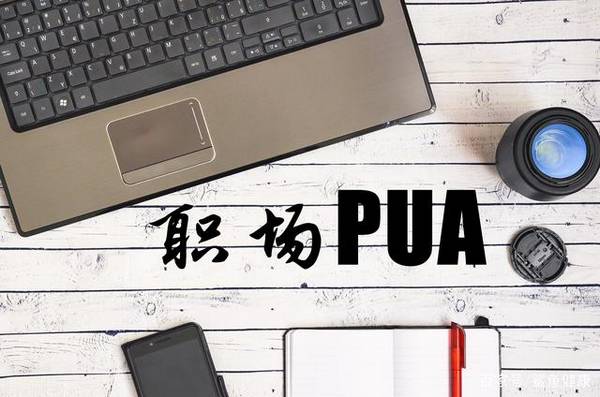- A+
当你用英语说或写的时分,你要保证你用的单词和短语精确地描绘了你在想啥。有许多办法可以做到这一点,包括运用限制词、润饰词和偏重词。可以让你描绘的更具体,非常好了解你的意思。

啥是润饰语?
和限制词相同,润饰语润饰语句的意思。它们根传闻话者的意图改动其意思。润饰语是协助你描绘意思的最广泛的一类词。因而,它们可所以一切类型的词类,如描述词、描述词从句、副词、副词从句、必定短语、不定式短语、分词短语和介词短语。假定运用稳当,润饰语可以使任何语句更招引人,更具体,更风趣的读者。润饰语给读者更多的信息,创造一个更无缺的情况。
例:
Amy gathered ingredients.
艾米搜集材料。
例:
Young Amy, who just wanted to eat her favorite dessert to reward herself, enthusiastically gathered ingredients for a cake from the kitchen pantry, sneaking bits of sugar and chocolate as she left a trail of flour on the kitchen table and floor, a situation requiring her mother to spend so much time cleaning up that she couldn’t help Amy bake the cake.
年青的艾米只想吃她最喜爱的甜点来奖赏自个,她从厨房的餐具室里热心肠搜集蛋糕的配料,悄然地在厨房的桌子和地板上留下一小片面粉,一起还偷了一些糖和巧克力,这种情况需求她母亲花太多时刻打扫清洁,致使于她无法协助艾米烤蛋糕。
上面这句话尽管很长,但比第一句讲的故事要多得多。它也更风趣的阅览,使你可以想晓得更多的情况。
艾米为啥要奖赏自个?为啥她母亲不帮她搜集配料?该语句还包括以下每品种型的润饰语中的至少一种,如下所述。
描述词(描述名词或代词):young
年青
描述词从句(用作描述词的描绘性短语):
who just wanted to eat her favorite dessert
只想吃她最喜爱的甜点的人

不定式短语(以不定式最初或后跟动词的描绘性短语):
to reward herself
奖赏自个
副词(描述描述词或动词):
enthusiastically
热心肠
介词短语(以介词最初的描绘性短语,青蛙可以对原木做的作业,如sit on, in, 或 on top of it):
from the kitchen pantry
来自厨房的餐具室
分词短语(以描述词方法的动词最初的描绘性短语,一般以-ing或-ed结束):
Sneaking bits of sugar and chocolate
偷一点糖和巧克力
状语从句(一种做副词的描绘性短语):
She left a trail of flour on the kitchen table and floor.
她在厨房的桌子和地板上留下面粉痕迹。
必定短语(附在语句上的不带连词的描绘性短语,常常批改整句话的意思):
Her mother to spend so much time cleaning up that she couldn’t help Amy bake the cake.
母亲花许多时刻收拾,她无法协助艾米烤蛋糕。
从上面的每个润饰语可以看出,它们可以放在语句的任何有些来润饰任何类型的单词或短语。
描述词和副词老是呈如今它们所润饰的词或短语的前面,但除此之外,大大都润饰语都可以放在它们听起来最佳的当地,它们即将润饰的东西最理解的当地。

啥是限制词?
限制词是润饰语的一个子组,可所以副词,可所以单词或短语,经过捆绑动词来改动化词的意义。
不要说 Pam was working,这意味着Pam正在作业,你可以经过说 Pam was hardly working,来捆绑你描绘的作业量。第二句几乎没有限制词,它的意思与第一句完全不一样。在这种情况下,Pam做的作业比早年少得多。
限制词的一般用处是标明置疑,或许限制你所说的话。你可以捆绑你所改动的动词和描述词的意义,假定你还没有满足的词汇量,这将非常有用。把这些限制词放在你想描绘的动词或描述词前面。
下面列出了一些非常常见的限制符:
减轻某事的影响:
May/Might/Maybe/May be/Might/Could/Kind of/Sort of/Somewhat/Slightly
可以/或许/或许是/有点/略微有点
例:
I might be going to Italy in June with my cousins, but I’m not sure yet.
我可以六月份和我的表兄弟们去意大利,但我还不断定。
The rain could fall, but the sun is out to it is hard to predict.
雨可以会下,但太阳出来了,很难猜测。
Katie kind of wants to go to Disneyland, but she is afraid to ask her parents to take her.
凯蒂有点想去迪斯尼乐园,但她不敢让父母带她去。
一个较小的数字
Few/Not many/A small number/A minority/Some
少/不多/少量/少量
例:
A minority of voters approve of the new legislation that is being considered.
少量选民撑持正在思考的新立法。
Few students enjoy learning from reading books, as they would 
prefer to try different things and learn by experimentation.
很稀有学生喜爱从读书大学习,因为他们更喜爱测验不一样的东西,经过实验来学习。
I would like some peas, please.
请给我一些豌豆。

某事不会比它发生得更频频,或许比你期望的要少
Hardly/Hardly ever/Rarely/Infrequently/Seldom/Sporadically/Scarcely/For a short time
很少/偶尔/几乎没有/短时刻内
例:
This is scarcely the time to be doubting our plans, Harry.
哈利,如今几乎不是置疑咱们方案的时分。
It hardly ever rains here, so if you draw lines in the sand, you can come back and see them years later.
这儿几乎从不下雨,所以假定你在沙地上画线,你可以在几年后回来看。
The ice cream truck rarely comes by our neighborhood, but is very popular when it does.
冰淇淋车很少经过咱们邻近,但很
受等待。
To create doubt
标明置疑
Unlikely/Improbable/Doubtful/Possibly/Probably/Not likely/Undecidedly/Apparently
不可以能/可疑/可以/不可以能/不断定/显着不可以能/不可以能/或许/不可以能/不断定/显着
例:
To answer your question, it is highly unlikely that Cassie will be picked for the position.
答复你的疑问,凯西被选上这个职位的可以性很小。
Don’t get your hopes up because your design is not likely to be selected.
不要因为你的方案不太可以被选中而抱有期望。
The doctor will probably have some time to see you in the afternoon, so come when you are available.
下午医生可以有时刻来看你,有空的时分来。

To make generalizations, or talk about multiple things that are related, but not the same
归纳,或谈论多种有关但纷歧样的作业
Basically/Essentially/Generally/Pretty/Rather/Virtually
根柢上/大体上/一般地/秀丽/恰当于/实践上
例:
“Traveling in the different countries in Asia is basically the same,” said John, who had never been to any of the countries in Asia.
从未去过亚洲任何一个国家的约翰说:“在亚洲的不一样国家旅行根柢上是相同的。”
Essentially, the point of the festival is to celebrate the great things that have happened in the past year.
从本质上讲,节日的意义在于庆祝曩昔一年发生的大事。
Virtually every tournament only lets boys compete, probably because everyone is afraid to be beaten by a girl.
几乎每场竞赛都只让男孩参加,可所以因为每自个都惧怕被女孩打败。
限制词不限于以上列表,可所以长短语,也可所以单个单词。
啥是偏重词?
偏重词是另一类特别的润饰语。它们具有与限制词相反的作用,并加强(而不是削弱)它们批改的单词和短语的意义。
They are either positive (like very) or negative (like definitely not).
它们要么是活泼的(像非常)要么是低沉的(像必定不是)。这两类偏重词的比方如下:
必定偏重词
Very/Extremely/Absolutely/Completely/Greatly/Too/So/Totally/Utterly/Highly/Rather/Really/Exceptionally/Particularly/Seriously/Quite (in American, but not British, English)/Awfully (be careful: awful means very bad, but awfully usually describes some great, like The cake was awfully delicious!)
非常的/必定的/完全的/非常的/太多的/所以的/完全的/程度高的/恰当的/非常的/特另外/细心的/恰当的(在美国,但不是英国,英语)/Awfully(留心:awful 的意思对错常糟糕,可是awfully一般描绘一些巨大的,如 The cake was awfully delicious! 蛋糕对错常甘旨的!)
例:
The boss was very adamant that the software be changed this way, so we had better listen to his demands.
老板非常坚决地需求这样批改软件,所以咱们最佳听听他的需求。
I completely agree with Nathan, even though we never agree on anything.
我完全附和内森的观念,尽管咱们历来没有达到共同。
Sally really wanted to kiss Liam that night.
那天晚上莎莉真的很想吻利亚姆。

否定偏重词
Never/At all/What on earth…?
历来没有/根柢没有/究竟是啥…?
e. What on earth is Mindy doing? To question Mindy’s actions.
明迪究竟在干啥?质疑明迪的行为。
Why… ever…?
究竟为啥?
e. Why did I ever agree to help you move your furniture? To indicate regret or a problem.
我究竟为啥附和帮你搬场私?标明怅惘或疑问。
Dangerously/Seriously/Ever again/Bitterly (goes with specific words, only, including cold, unhappy, disappointed, sad, )
风险的/严厉的/永久的/苦楚的(仅限于特定的词语,包括冷酷、不高兴、绝望、哀痛)
例:
Luke never wants to see Philip ever again.
卢克再也不想见菲利普了。
My son does not want to attend this college at all!
我儿子根柢不想上这所大学!
You are getting dangerously close to the edge of my patience.
你正风险地接近我的忍耐极限。
一个更大的数字
Many/Most/Some/Lots of/Numerous/Countless/A majority/Mostly/Various
许多/大大都/一些/大大都/数不尽的/大大都的/林林总总的
例:
Countless efforts have been made to change the system, but nothing has worked.
为改动这一准则现已做了许多的尽力,但啥也没有收效。
A majority of the benches in this park were donated by people from this neighborhood.
公园里的长椅大有些是由邻近的人捐赠的。
Herbert was mostly just curious why you designed your office this way.
赫伯特只是猎奇你为啥要这样方案你的单位。

某事常常发生,或比你期望的更广泛
Often/Frequently/Commonly/For a long time/Usually/Sometimes/Repeatedly
常常/频频地/一般地/长时刻/常/有时/重复
例:
For a long time, I thought that all rabbits just ate carrots all the time.
很长一段时刻以来,我一向认为一切的兔子都只吃胡萝卜。
She frequently stops by our shop to buy a jar of pickles.
她常常来咱们店里买一罐泡菜。
I have told you repeatedly not to bother me when I am working, have I not?
我重复告诉过你,我作业时不要打扰我,是吗?
何时以及如何运用润饰词、限制词和偏重词?
在很大程度上,运用这些单词和短语可以描绘出一幅愈加五颜六色和充溢活力的画面,你想说啥。它们有助于供给更多的细节和闪现无缺的图像。
润饰语可以用在语句的任何当地,可以有多种不一样的方法。限制词和偏重词是常常呈如今它们所润饰的词或短语前面的词或短语。可是,运用太多会使你的写作或讲演化得凌乱无章。削减你运用的单词数量和语句凌乱程度的一个好办法就是温习你的写作。
例:
Very important = crucial, central, essential
非常重要=要害、中心、要害
Very unimportant = trivial, irrelevant
非常不重要=微缺乏道,无关重要

Very cold = chilly or freezing
非常冷=严寒的,冷嗖嗖的
Very hot = sweltering
非常热=火热的
Very confusing = puzzling, perplexing
非常利诱的=令人疑问的
Very slow = sluggish
非常慢=慢悠悠的
Very fast = speedy, rapid, swift
非常快=灵敏的
Very large = enormous, giant, huge
非常大=无量的
Very small = nonexistent, tiny
非常小=不存在的,极小的
喜爱请多多重视学府翻译哦~




